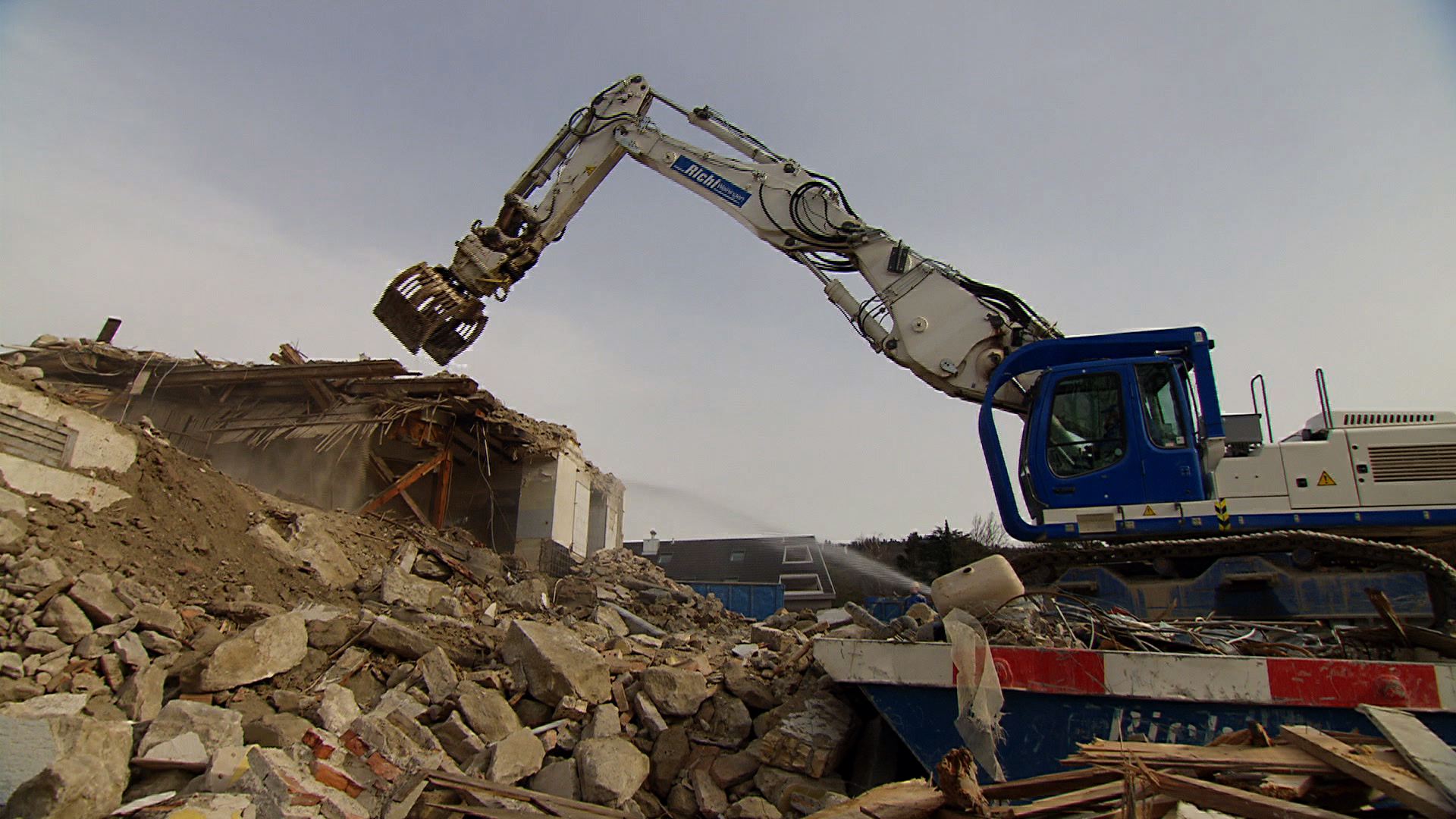Plastic recyclers face uphill battle

Most plastic bottles and packaging end up in the rubbish. And for those who want to recover that plastic, the difficulties often outweigh the benefits. swissinfo.ch visits a recycling centre in canton Vaud.
Hundreds, perhaps thousands, of empty tubes of ointment are lying on the wet ground. They have fallen from cardboard boxes piled along the side of the recycling depot.
“They’re wrapped in a thin strip of aluminium – too thin to be recycled. And I’m not sure that the plastic parts are all the same material,” says Christian Piller, director of Retripa, a recycling centre and materials recovery facility in Crissier, near Lausanne.
“Sure, we can unscrew the caps, but what do we get from that? Twenty or 30 kilos of plastic? It’s not worth the hassle.”
The set-up in Crissier deals mainly with paper, cardboard, wood and iron waste. The plastic coming from industry, shops and locals constitutes around 15 per cent of the 1,000 tons of material recovered every year.
Among the objects that are crushed and granulated are containers, bottle crates, plastic sheets and garden pots – to name but a few. PET and polyethylene milk bottles on the other hand are compressed into enormous cubes, which will then be transported to other centres to be reprocessed.
For the staff, the hardest thing about recycling lies in the main characteristic of plastic: its diversity. PVC, PET, PE, PA, PP… there are hundreds of types of plastic in use.

More
Gathering precious raw materials from city waste
Government plan
To overcome this problem – at least partially – the government wants to force retailers to take back and collect separately other plastics besides PET (polyethylene terephthalate).
“These could include polyethylene bottles used for cleaning products or polyethylene sheets used in agriculture,” Isabelle Baudin, a scientific officer at the Federal Office for the Environment, told swissinfo.ch.
The office expects to work out the details by next year, as part of the “Green Economy” action plan presented by the government in March. This was a counterproposal to the popular initiative “For a sustainable and resource-efficient economy”.
But it will be an uphill battle, even with further regulation.
“The type of plastic must be indicated, but lots of fragments make their way into the rubbish – for example a piece of tubing – on which there’s absolutely no labelling,” Piller explains.
Some products, he adds, are a hotchpotch of various plastics, “which therefore makes separating them virtually impossible”. The addition of adhesives, colorants and chemical additives complicates their work further.
At Retripa, as at other centres in Switzerland, plastic is separated to a large extent by hand along a conveyor belt. Machines for automated separation, which employ infrared technology, are for the moment only found abroad.
Piller is particularly interested in industrial waste and waste from craftsmen.
“It’s of uniform structure and available in large quantities. And normally it’s clean. A family business asked me to recover yoghurt pots – I turned them down as there weren’t enough to cover logistical costs.”
He points out that technical solutions for recycling exist, at least for certain types of plastic.
“The costs of transport and separation are increased. If I hadn’t already had all the infrastructure, I doubt I would have gone into recycling plastic. I’ve seen specialist companies go bust,” he says.
The amount of trash collected in Switzerland was around 5.5 million tons in 2011. Approximately 50 per cent of this was recycled.
Recycling became part of Swiss life in the 1970s, with the introduction of user-pays systems such as special pre-taxed bags. St Gallen was the first Swiss city to propose this system, in 1975.
Recycling of drink containers made of aluminium, PET and glass reached 92 per cent in 2011. There are around 60,000 collection points across the country.
More than 85 per cent of electronic devices purchased by the Swiss are also handed over for recycling. Consumers pay an up-front recycling tax when they purchase a device that is included in the price.
In 2010, 45 per cent of the 590,000 tons of old paper collected for recycling was also exported.
(Source: Federal Office for the Environment, Swiss Recycling)
Initiatives
In Switzerland, one million tons of plastic are used a year on average. The industries which use the most are packaging (37 per cent) and construction (25 per cent).
Waste is for the most part burnt. Incineration plants are the best way to derive extra value from plastic, according to the Swiss Plastics Association. Some is converted into substitute fuel – plastic is derived from oil – and put to use in cement factories. Only 10 to15 per cent is recycled.
This percentage is too low though, says Raymond Schelker from REDILO, a Basel consultancy specialising in the recycling of plastics.
“There are various isolated initiatives, like the one from Migros [which this year extended the collection of empty detergent and shampoo bottles in all of its stores],” he told swissinfo.ch.
“It would be more sensible, however, to adopt a common position. The framework conditions are missing.”
Environmental impact
In terms of environmental impact, recovering plastics is a good practice according to Schelker. Every kilogram of recycled plastic saves one litre of oil and 2.5 kilograms of carbon dioxide.
The potential is massive, he reckons. “I’m referring to all the transparent films used in packaging for industry or consumers, for example those multipacks. Or shampoo bottles and cleaning products.”
Schelker believes industrial waste and discarded products should be recycled more. But he admits that the current incineration system for domestic plastics “is not so bad”.
Piller points out that plastic is an important fuel in incineration plants: burning it produces heat and electricity.
“In future it will be the price of oil, along with the costs of incineration, that establishes whether it’s worth recycling plastic,” he says.
(Adapted from Italian by Thomas Stephens)

In compliance with the JTI standards
More: SWI swissinfo.ch certified by the Journalism Trust Initiative

You can find an overview of ongoing debates with our journalists here. Please join us!
If you want to start a conversation about a topic raised in this article or want to report factual errors, email us at english@swissinfo.ch.